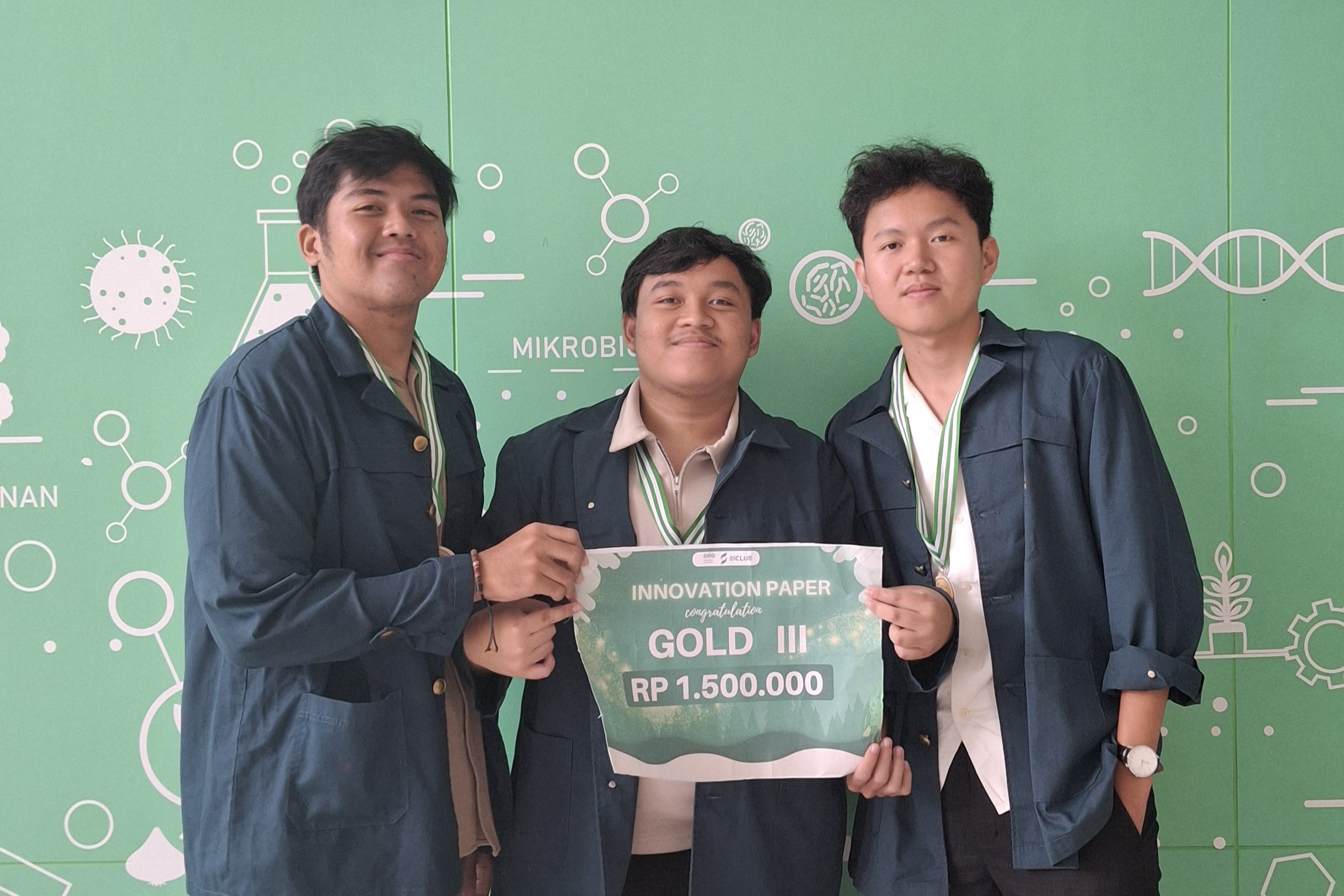Turning Microalgae Into Electricity: ITB's Chloratullations Team Wins Gold at SICLUS 2024 International Competition
By Nur Asyiah - Mahasiswa Rekayasa Pertanian, 2021
Editor M. Naufal Hafizh, S.S.

BANDUNG, itb.ac.id – Students from Institut Teknologi Bandung (ITB) have once again made an achievement internationally. The Chloratullations team took third place overall and won a gold medal in the full paper category at the Student Innovation in Climate, Energy, and Sustainability (SICLUS) 2024 competition.
The team, led by Firdaus Ilham (Biological Engineering), included members Hanif Yusran Makarim (Agricultural Engineering '22) and Delon Davidson (Biological Engineering '22).SICLUS 2024, organized in collaboration with Universitas Hasanuddin Makassar and partner universities in the Philippines, Australia, Sudan, and Norway, focused on "Visioning a City of the Future: Pioneering Innovations in Infrastructure, Affordable Energy Solutions, Green Mobility, and Circular Material Flows to Create a Future-ready Metropolis." Participants could choose from five subthemes: SDGs, Maritime, Infrastructure, Economy, and Residential.
Chloratullations chose the residential theme, targeting environmental waste issues that make living spaces unhealthy yet have the potential to be optimized as clean energy sources.
The team's project, titled CYRIL (Chlorella Yield Utilization for Renewable Industrial Lifecycle), addresses concerns over liquid waste and the low adoption of renewable energy in Indonesia. CYRIL is an integrated technology to convert microalgae into electricity, providing a sustainable and low-emission energy solution.
Hanif explained that CYRIL integrates three key technologies: Direct Air Capture (DAC), a Green Wall Panel photobioreactor for algae cultivation, and a complex installation combining anaerobic digesters, biogas production, and Organic Rankine Cycle - Internal Combustion Engine (ORE-ICE). "This technology is highly emission-efficient," Hanif said.
CYRIL's system involves three stages. First, the Green Wall Panel (GWP) culture stage in the upstream process uses industrial wastewater and CO2 emissions for algae cultivation. The resulting microalgae are then used to synthesize biogas via an anaerobic digester and the ORC-ICE mechanism, producing electricity that can power industries using CYRIL or be sold to PLN as an independent power producer (IPP).
In preparing their paper, team members faced challenges such as conflicting schedules and long distances, leading them to delegate the in-person final pitch to Ilham, the team leader. Despite these hurdles, their teamwork and dedication led to success.
Hanif and his team learned valuable lessons from the competition, including the importance of a strong desire to learn, confidence, willingness to take risks, and the ability to map out each team member's strengths.
Their inspiring journey serves as motivation for other students to follow in their footsteps. They hope their project can evolve from an idea to a realized solution that supports Indonesia's renewable energy acceleration efforts.
"We hope to keep innovating and contributing to the renewable energy transition for a cleaner, sustainable Indonesia while also inspiring the academic community," Hanif said.
Reporter: Nur Asyiah (Agricultural Engineering '21)
Translator: Anggi Nurdiani (Management '24)
Editor: Ariq Ramadhan Teruna (Chemical Engineering '21)

.jpg)

.jpg)
.jpg)
.jpg)

